PSYC 2530: What is cognition?
A general overview
Matthew J. C. Crump
Last compiled 09/01/22
Reminders
This is the slide deck for Learning Module 1: What is cognition?
The reading is from chapter 1 What is cognition?
Roadmap
1 Questions of Cognition
2 Methods
3 Findings
4 Explanations
5 Applications
6 Implications
Instances of Cognition
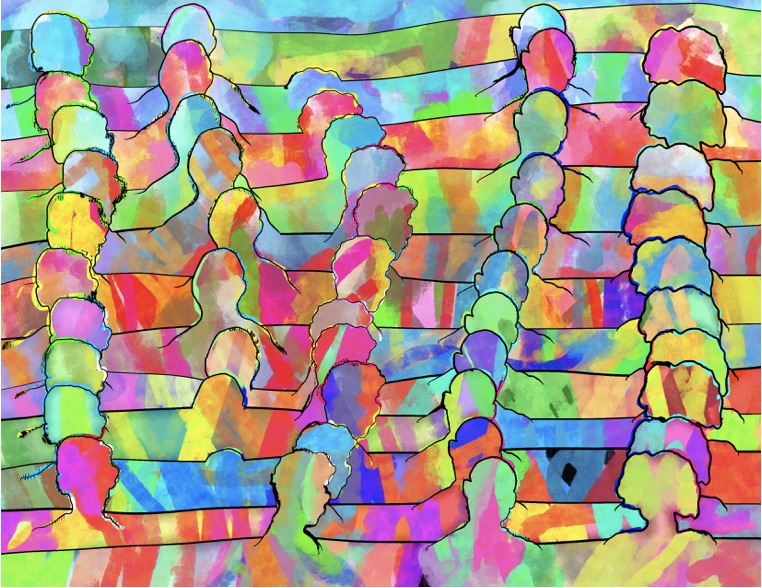
Museum Metaphor
Like a museum has many rooms and artifacts, there are a great diversity of ideas, approaches in cognition.
Museum’s are too big to see all in one day, or even a semester, just like cognition

Tour guide of cognition
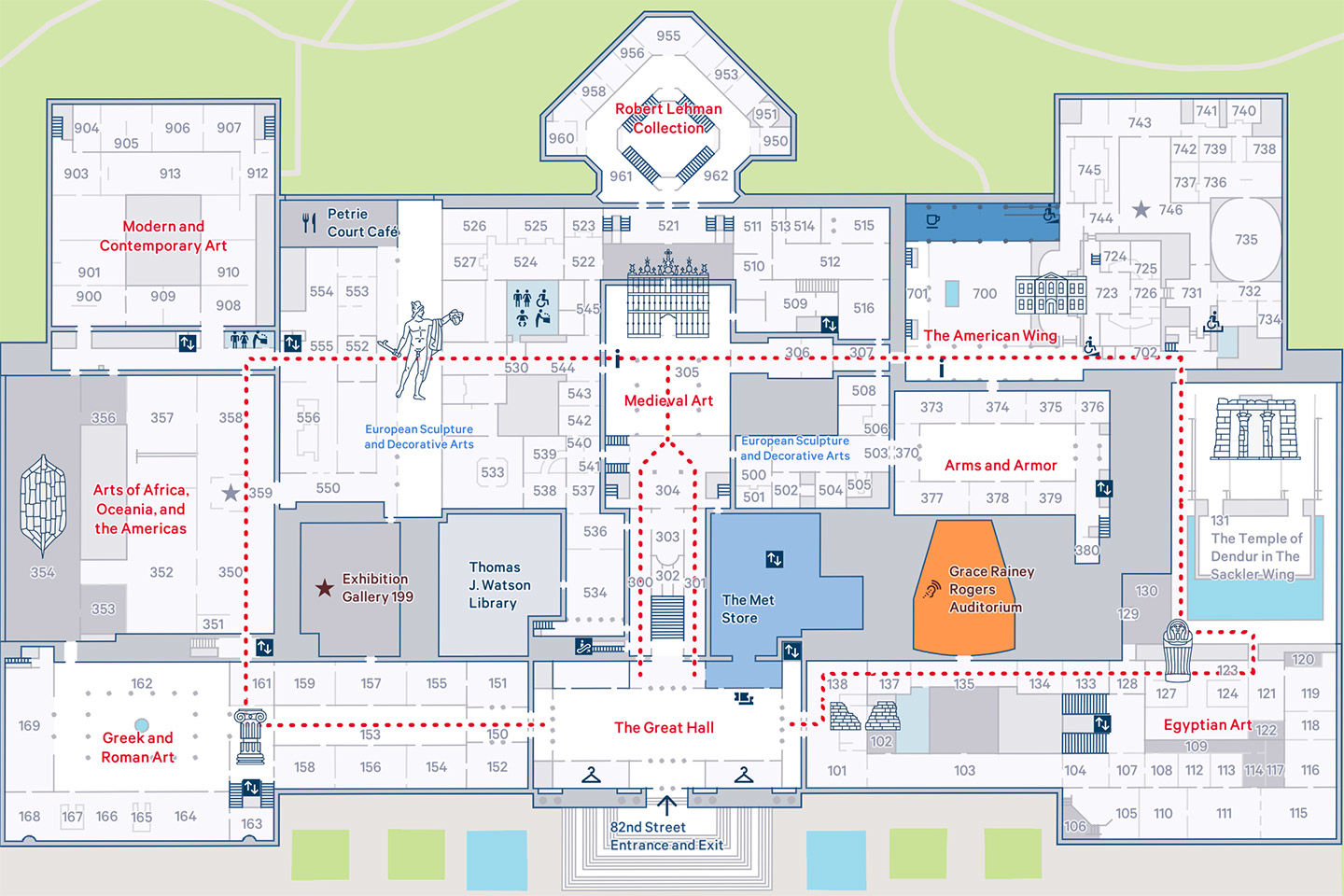
Questions of Cognition
- What is cognition?
- What questions are researchers asking and answering in cognition
Defining Cognition
Ulric Neisser defined cognition in 1967 as:
“…all processes by which the sensory input is transformed, reduced, elaborated, stored, recovered, and used.”
This definition is still current, but we will expand on it in this course
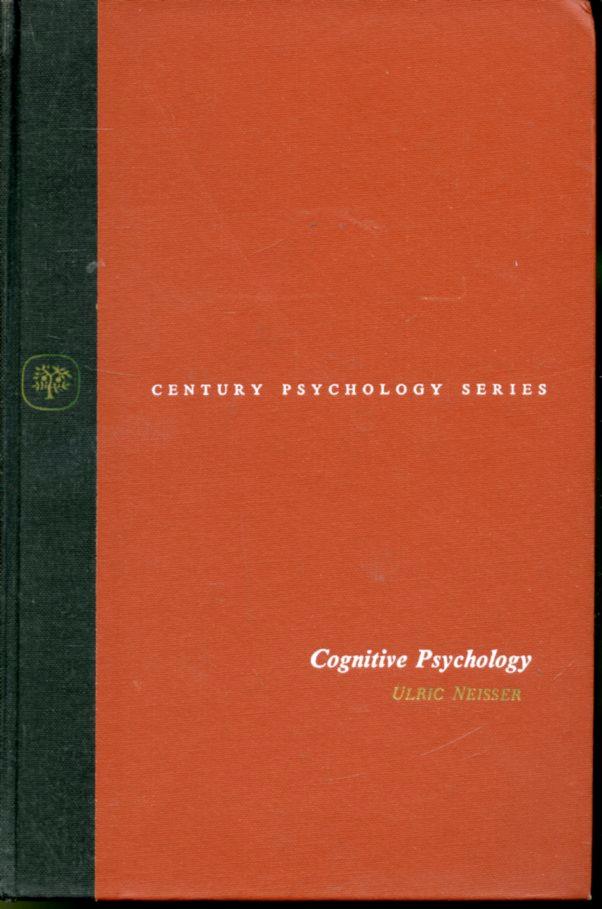
Prospects of Cognition
Neisser is also quoted as saying:
“If X is an interesting or socially important aspect of memory, then psychologists have hardly ever studied X”
Cognition is partly an unfulfilled promise…Lot’s of work has been done, there are many more interesting questions to ask…
Research Questions
Research questions are typically about how some cognitive ability works. For example:
- How do you control body movements, from finger movements to facial expressions?
- How do you pay attention or ignore others?
- How did you forget what you were doing while you were in the middle of doing something?
- How can you train your brain to get better at something?
- How do you learn to read, and know the meaning of words? How can you read faster?
- and many more…
Research Domains
Research questions are often grouped into domains of specialization. Some of the textbook chapters are grouped by domain. Some general domains in cognition include:
Learning, Memory, Attention, Perception, Reasoning, Categorization, Concept formation, Judgment and decision-making, Language, Semantic knowledge, Skill-acquisition, Music perception, Motor control, Cognitive control, Creativity, Emotion, Object Recognition, Pattern Recognition, Implicit learning, Working Memory, Individual Differences, Consciousness, Mental Imagery, Planning, Statistical Learning…
Answering research questions?
How do cognitive researchers figure out how cognitive abilities work?

Roadmap
1 Questions of Cognition
2 Methods
3 Findings
4 Explanations
5 Applications
6 Implications
The research cycle
The research cycle involves a wide variety of methods–such as the scientific method–that researchers use to generate knowledge about cognition.
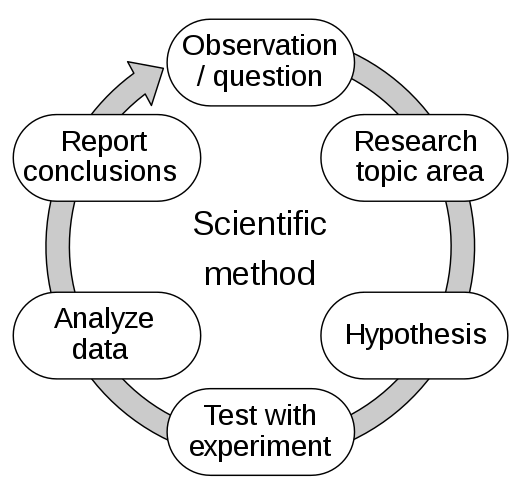
- Let’s overview the research cycle with an example from cognitive research on reading
Observation/Question
QUESTIONS: How can a person read faster? Are there tricks? Does speed-reading work?
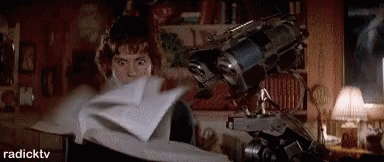
Research Topic Area
The background research stage involves finding and reading previous work on your topic:
- Search for papers using Google Scholar
- Use the BC library search tool
- Collect and read the papers…
- check out Zotero to help you manage pdfs
A quick search
Let’s search Google Scholar for “how to read faster and see what happens”
Finding the good stuff
Try out different search terms to find prior research that could be highly relevant
- let’s search “does speed reading work?”
Rayner et al. 2016
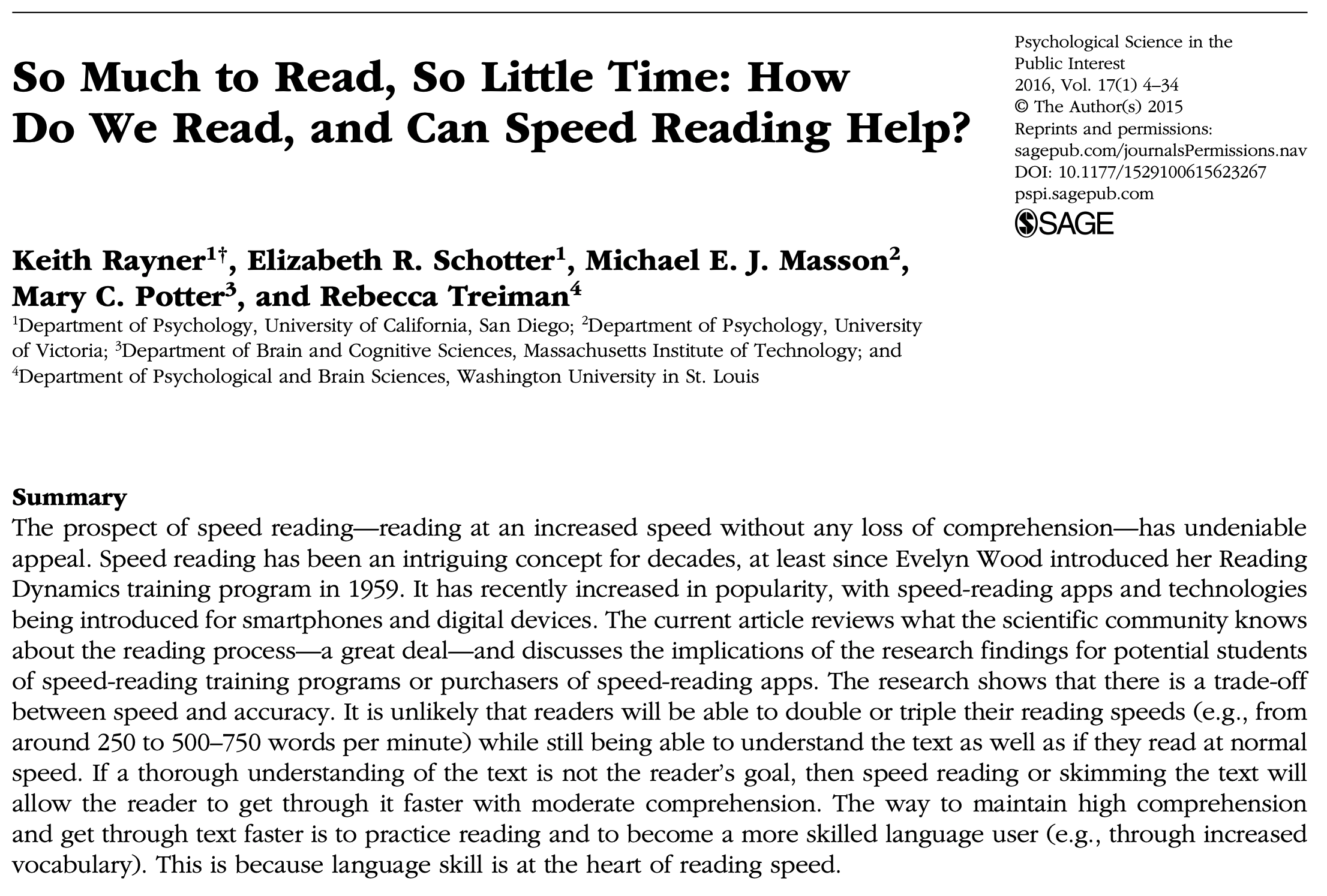
Reading the review
The Rayner et al. (2016) paper provides a very in-depth review of the prior literature on how people read.
If you wanted to come up with a new hypothesis to test, it would be worth learning what other people already did.
Let’s look at an example of a how a testable hypothesis about reading was developed from prior observations
Prior observation
When reading, your vision is most clear in the middle (where you are foveating), and gets more blurry moving into the periphery.
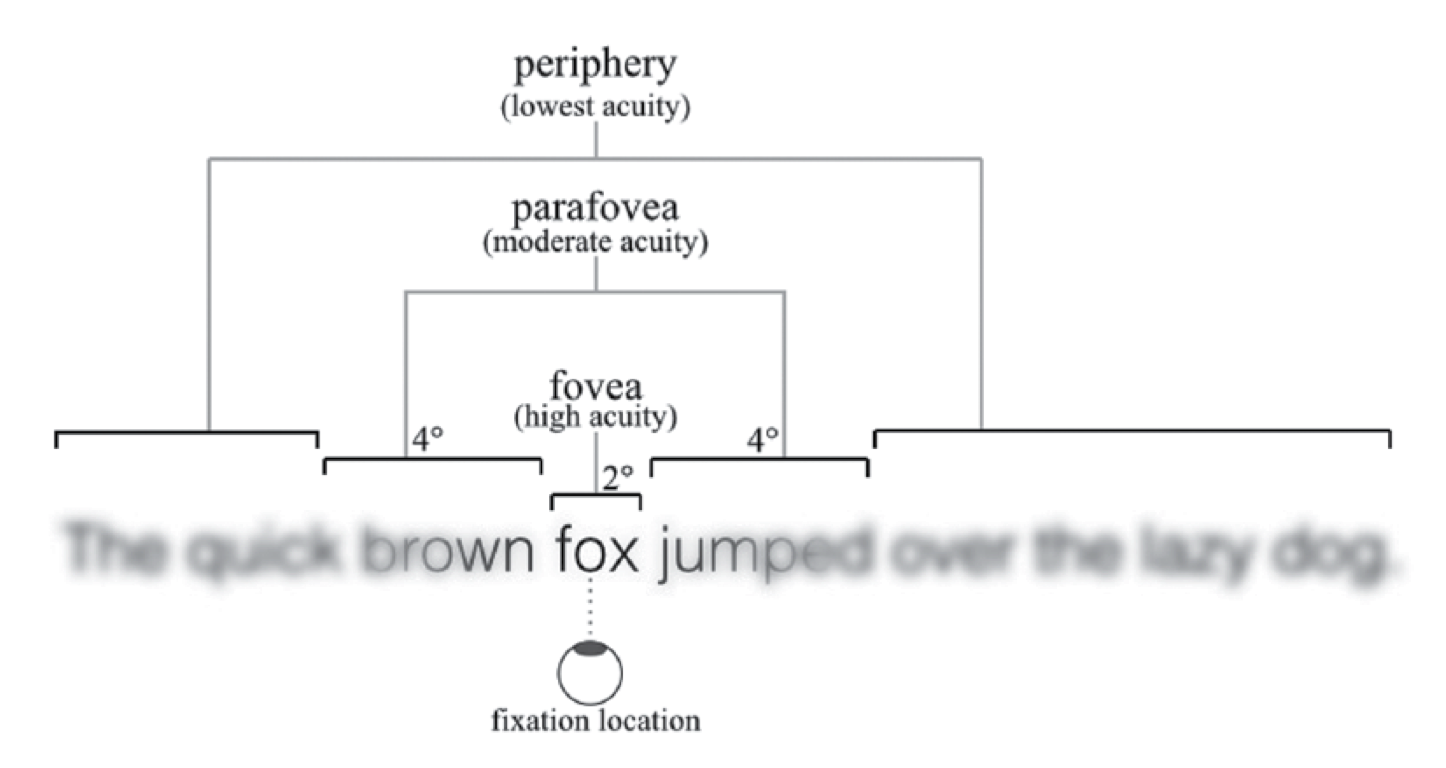
(figure from Rayner et al, 2016)
Hypothesis
It is easy to see words you are looking at, but harder to see other words in the sentence because peripheral vision is blurry
Hypothesis: Reading speed depends on visual acuity of peripheral vision
Inference: Reading speed should be improved if people could see words in the periphery more clearly
Experiment
The purpose of an experiment is to create a controlled situation to test the hypothesis.
Independent variable (IV): A manipulation (at least two conditions)
Dependent variable (DV): A measurement, taken under each condition of the manipulation
Empirical question: Does the manipulation cause differences in the measurement?
What manipulation?
What kind of manipulation could improve peripheral vision?
Control Condition
IV: Normal text and reading conditions
DV: Measure reading ability
Experimental condition
IV: Change something to improve peripheral vision
DV: Measure reading ability
Example manipulation
Miellet, O’Donnell, and Sereno (2009) used a parafoveal Magnification manipulation
Control
IV: He could never get rid of the image from his mind
Parafoveal Magnification
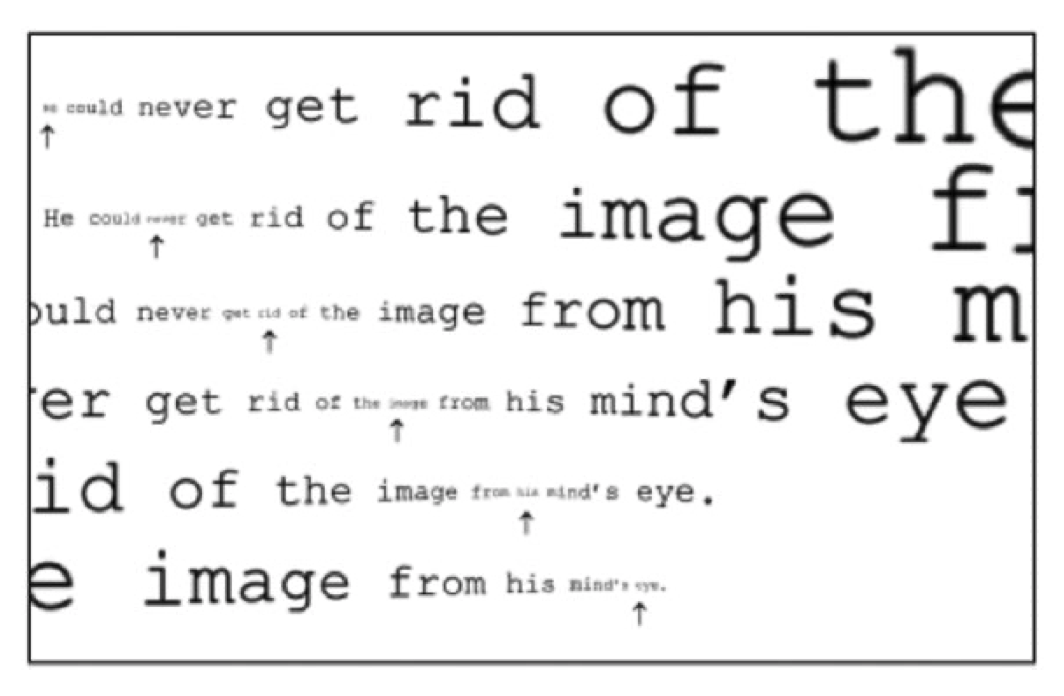
Empirical Question
Empirical Question: Will parafoveal magnification change reading ability compared to the control condition?
Control
IV: He could never get rid of the image from his mind
DV: Measure reading ability
Parafoveal Magnification

DV: Measure reading ability
How do we measure reading ability?
Reading ability measures
There are many ways to measure aspects of reading
- Words per minute
- Memory test: can you remember which words you read
- Comprehension test: did you understand what you read?
- Perceptual span: how many letters/words can you see at once
Measures aren’t always perfect
- A person could “read” really fast (high words per
minute), but comprehend nothing of what they read…
- so what is WPM really measuring?
- A person could pass a comprehension test without
reading based on general knowledge…
- so what is a comprehension test really measuring?
Measurement creativity
One ongoing challenge in cognition is to create measures that can be informative about how cognitive abilities work.
We will see many different kinds of measurements across the course
So what happened with the reading experiment?
Roadmap
1 Questions of Cognition
2 Methods
3 Findings
4 Explanations
5 Applications
6 Implications
Experimental Results
The research cycle in cognition produces findings.
In an experimental design, findings refer to whether or not the measurement was influenced by the manipulation.
For example, did the parafoveal magnification technique change reading ability?
Null results
Miellet et al. (2009) measured average sentence reading time.
They found null results.
The parafoveal magnification (PM) manipulation did not change reading time
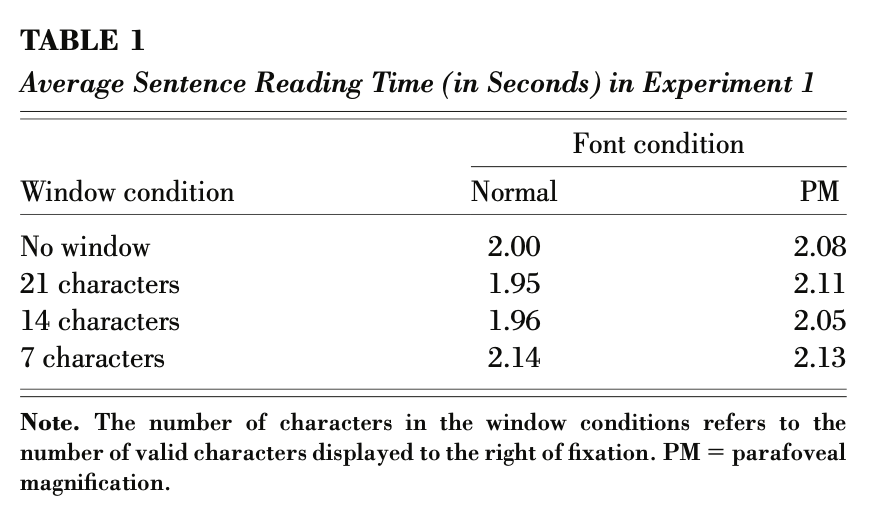
Interpreting Data
Miellet et al. summarized their results in a table.
A general skill for this course is to gain experience interpreting data from experiments
Data can presented in many different formats, usually tables and graphs

Drawing Inferences
After results are collected and summarized, a next step is to draw inferences about the hypothesis, and generate more questions.
Inference
Making peripheral words bigger does not improve reading speed
Questions
- Why didn’t it work?
- Make the words even bigger?
- What does this say about how reading works?
- How does reading work?
Roadmap
1 Questions of Cognition
2 Methods
3 Findings
4 Explanations
5 Applications
6 Implications
Explanations in Cognition
There are many different approaches to explanation in cognition
We will spend the rest of the semester learning about ways that cognitive phenomena are “explained”
Levels of Analysis
Explanations can take place at different levels
Vision scientist David Marr describes three levels of analysis:
- Computational
- Representational/Algorithmic
- Hardware
Computational Level
The computational level refers to the goal of the process
For example, what are the goals of reading processes?
Representational level
The representational/algorithmic level refers to the:
- inputs to a process,
- the transformations that modify the inputs (algorithm), and 3. the outputs of the process.
For example, what kind of perceptual information is received for reading purposes, and how perception transformed into semantic knowledge?
Hardware level
The hardware level refers to how the representations and algorithms are physically instantiated
For example, what are the brain mechanisms of reading and how do they work?
Explaining reading
Reading is a very interesting and complicated cognitive ability
What would an explanation of reading look like?
What would you want the explanation to be able to do?
Common answers
A generic answer in cognition to the preceding questions might be:
A theory or explanation of reading should be able to:
- account for all experimental findings in the reading literature
- predict the results of new experiments
- inspire new lines of research
- generate applications
Roadmap
1 Questions of Cognition
2 Methods
3 Findings
4 Explanations
5 Applications
6 Implications
Applied Cognition
The research cycle generates more research, and sometimes it also generates real-world applications.
Across the semester we will encounter many applications of cognitive research.
Speed-reading technology?
Not all applications are made equal.
There are many speed-reading methods that claim to improve reading speed.
Unfortunately, according to Rayner et al. (2016), reading research has not shown these methods to be effective
Sprintreader.com
http://www.sprintreader.com is an example of an applied technology that could potentially help people read faster
It uses RSVP (rapid-serial visual presentation)
But..see Benedetto et al. (2015)
Roadmap
1 Questions of Cognition
2 Methods
3 Findings
4 Explanations
5 Applications
6 Implications
Implications of Cognitive research
Cognition is connected to many topics in our daily life.
Cognitive research has the potential to help us understand ourselves, our society, and other cognitive creatures (animals, and even machines)
Applied cognitive research could help repair cognitive impairments, improve everyday cognition, and lead to useful smart technologies.
Socio-Historical implications
Psychological and cognitive research has already had implications for society over the last 150 years.
The history shows inequalities in the social benefits and costs of research applications.
We will discuss some of this history across the semester.
Questions to keep in mind
What are the goals of the cognitive sciences and research in cognitive psychology?
Who has been involved in setting those goals?
Are the goals useful?
What kind of questions about cognition have already been asked by researchers?
What were the scientific as well as social-historical reasons for why those researchers asked those questions?
What answers were found, and how were they informative or not informative about how cognition works?
How do the measurements and tools that researchers use to ask questions influence the kind of picture they build about how cognition works?
What kinds of questions about cognition are not being asked that should be asked?
Why are they not being asked?
What benefits to society have been produced by the cognitive sciences?
Have the benefits been spread equitably across different groups of people?
What costs to society have been produced by the cognitive sciences?
How are the costs shared by society?
Are there injustices resulting from cognitive science research?
Have they been adequately addressed?
How should society decide whether or not to proceed with different kinds of research?
What’s next?
Complete the quiz and/or assignment for this module by the suggested due date
No class Monday (Labor Day)
Next class is our first course assessment (Wednesday, September 7th)